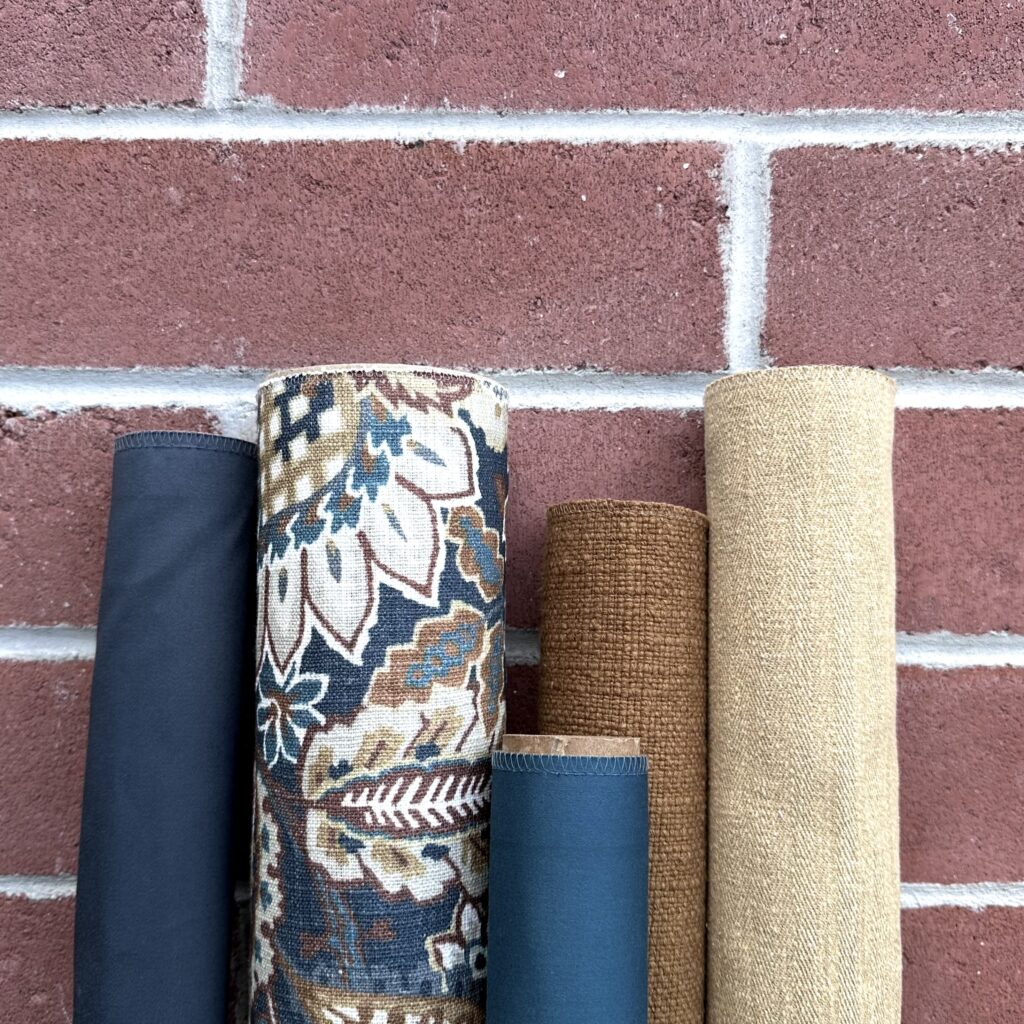What Are Sustainable Textiles?
Sustainable textiles are materials produced with minimal impact on the environment. This involves using eco-friendly raw materials, reducing water and energy consumption, and minimizing waste throughout the production process. Common sustainable fabrics include organic cotton, hemp, bamboo, and recycled fibers, each offering unique benefits for the environment and consumers.

Regal Fabrics sustainable cotton and linen upholstery fabrics (From left: R-MOLLY Cadet, R-Tremont Prussian, R-MOLLY Prussian, D-PROTEGE Deer Trail, D-PERMA Honey)
Environmental Benefits of Sustainable Textiles
- Reduced Water Consumption: Traditional textile production is notoriously water-intensive. Organic cotton production, for example, can use significantly less water than conventional cotton.
- Lower Carbon Footprint: Sustainable textiles often require less energy to produce. Using recycled fibers or organically grown materials reduces greenhouse gas emissions, contributing to the fight against climate change.
- Less Chemical Usage: Sustainable textiles typically use fewer or no synthetic chemicals, which can promote healthier ecosystems.
- Waste Reduction: Many sustainable textiles incorporate recycled materials, diverting waste from landfills and reducing the need for virgin resources. This circular approach helps in creating a more sustainable economy.
Why Sustainable Textiles Matter for Retailers and Furniture Makers
- Meeting Consumer Demand: Today’s consumers are more environmentally conscious than ever. Offering sustainable textiles can attract a growing segment of eco-minded buyers, enhancing your market appeal.
- Brand Differentiation: Incorporating sustainable textiles into your product line can set your brand apart. Highlighting your commitment to sustainability can strengthen your brand image and foster customer loyalty.
- Positive Environmental Impact: By choosing to incorporate sustainable textiles, you can help the textile industry increase sustainability while satisfying buyers’ evolving needs. This positive impact can resonate with customers and create a sense of shared purpose and community.
The move towards sustainable textiles isn’t just a trend—it’s a necessary evolution for our industry. Using sustainable practices can create beautiful, high-quality products that are kind to the planet and meet the needs of today’s conscious consumers. Working together to make a positive impact on the environment builds a more sustainable future for all.
Did you know Regal’s Kindred fabric line incorporates textured natural fibers, sustainable yarns, and vegetable dyes to combine casual, comfortable looks with the easy-care washability today’s consumers crave? Also, Regal Fabrics textiles do not and have never contained PFAS and we have fully switched to the C-Zero standard for fluorine-free stain-resistance performance finishing (PUREformance), available on all our products. Here are some of our best-selling Kindred fabrics and all the fabrics in the picture above, all available with performance finishing: